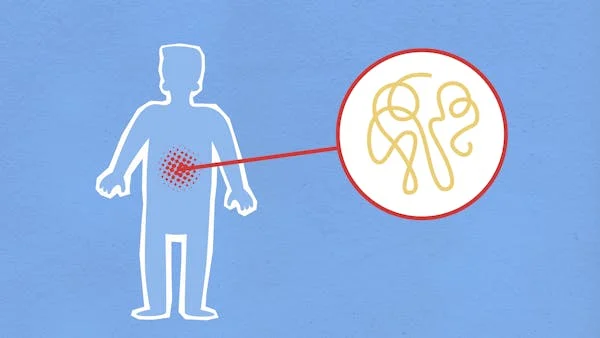Welcome to the confusing world of adult gastrointestinal ailments! You’re not alone in your digestive journey, whether you’re struggling with more chronic gastrointestinal issues or just the occasional episode of indigestion. This article is about stomach disorders in adults, the most common issue, almost appearing in every third person. Come along with me as we set out on a mission to solve the stomach’s puzzles, interpret its signals, and overcome its obstacles. Together, let’s negotiate this complex landscape, which includes well-known enemies like acid reflux and gastritis as well as mysterious antagonists like gastroparesis and Crohn’s disease!

Exploring the Domain of Digestive Systems
The stomach, a marvelously intricate organ, has the difficult job of breaking down the many foods we eat. Unfortunately, though, there is room for disruption even in this culinary fortress. Adults may develop stomach diseases for a number of reasons, from dietary errors to underlying medical conditions. So, what are these digestive problems specifically, and how do they present themselves?
Breaking Down Typical Causes of Acid Reflux: The Heartburn Havoc Imagine this: After enjoying a delicious meal, you’re suddenly hit with a scorching attack of heartburn. Does this sound familiar? Welcome to the turbulent world of acid reflux, where stomach acid rebelliously overflows its bounds and shoots up into the esophagus. Fortunately, relief is on the way! Here are some methods to stop the heartburn havoc:
Accept moderation: To relieve the strain on your already-taxed stomach, choose to eat smaller, more frequent meals.
Boost your sleep: Prop up your pillows and sleep in a semi-upright posture to say goodbye to nighttime reflux.
Use antacids to your advantage: Stock up on these durable fighters to counteract excess stomach acid and bring your digestive system back into balance.
Fighting the Belly Bane, one of the main stomach disorders in adults
Oh, gastritis, the mighty enemy that catches the gullible with its devious grasp. This illness, which is characterized by inflammation of the stomach lining, can seriously disrupt your digestive balance. But fear not, brave warriors—you have what it takes to defeat this stomach scourge! Here’s how to stop its evil schemes:
Make the switch to a stomach-friendly diet by saying goodbye to oily, spicy, and acidic foods in favor of comforting soups, mild grains, and mild greens.
Accept the therapeutic benefits of probiotics: Eat foods high in probiotics, such as yogurt, kefir, and fermented vegetables, to help your digestive tract grow a thriving garden of good bacteria.
Avoid stressful situations: Equip yourself with calming methods like yoga, meditation, and deep breathing to strengthen your resistance to the corrosive effects of stress on your stomach lining.
How to Handle Less-Known Lurkers
Gastroparesis: The Blockage in the Stomach
Get ready to face the mysterious mystery of gastroparesis, a disorder that interrupts the delicate dance of digestion with delayed stomach emptying. When food stays in the stomach for a long time, it can cause symptoms like bloating, vomiting, nausea, and pain in the abdomen. Nevertheless, brave explorers need not worry—hope is just around the corner! Here are a few methods to get around the stomach bottleneck:
Adopt a liquid diet: Choose soups, smoothies, and broths as your main sources of nutrition to ease the burden on your digestive system.
Take it slow: Eat modest, frequent meals throughout the day to avoid packing too much food into your already-sluggish stomach.
Speak with a doctor: Consult a physician expert who can provide drugs like prokinetics to increase stomach motility and reduce symptoms.
Crohn’s Disease: The Invasion of the Intestines
Here it is, the sneaky visitor known as Crohn’s disease, a chronic inflammatory illness that specifically attacks the gastrointestinal tract. Its malicious grasp extends to every part of the digestive system, from the mouth to the rectum. But do not be alarmed, brave spirits—you are not helpless in the face of this intestinal intruder! The following are some tactics to stop its progress:
Adopt an anti-inflammatory diet: Avoid inflammatory triggers such as processed meats, sugary snacks, and refined carbohydrates, and fuel your body with foods high in fiber, antioxidants, and omega-3 fatty acids.
Leverage the therapeutic potential of drugs: To reduce inflammation and encourage remission, arm yourself with a potent medicine bag that includes biologics, immunomodulators, and corticosteroids.
Build a network of support: Seek comfort from other fighters who have experienced the same hardships as you with Crohn’s disease, whether via internet forums, support groups, or close friends and family.
IBDs, such as Crohn’s disease, can impact any area of the gastrointestinal tract, ranging from the mouth to the intestines. What you should know is as follows:
Symptoms: Typical symptoms include blood in the stool, exhaustion, diarrhea, and abdominal pain. Over time, these symptoms may come and go and range in severity.
Causes: Although the precise etiology of Crohn’s disease is unknown, a mix of immune system, environmental, and genetic variables are believed to be involved. Certain drugs, family history, and smoking may raise the risk.
Diagnosis: A variety of tests, including blood tests, imaging investigations (like CT scans or MRIs), endoscopic procedures (like colonoscopies or sigmoidoscopies), physical examinations, and medical histories, are frequently used to make a diagnosis.
Therapy: The goals of therapy are to lessen inflammation, ease symptoms, and avoid consequences. This could involve using anti-inflammatory, immunosuppressive, antibiotic, and biological therapy medications. In extreme situations, intestinal sections that are impacted may need to be surgically removed.
Getting Around the Digestive Odyssey
Let us leave the confusing world of stomach disorders in adults with strengthened resolve, increased information, and a sense of support from one another when facing digestive hardship. Remind yourself that you are not alone on this journey, no matter if you are against well-known adversaries like gastritis and acid reflux or obscure ones like gastroparesis and Crohn’s disease. You can navigate the digestive labyrinth and come out on top if you are persistent and patient, and receive advice from medical professionals. So let’s go, daring travelers, and may your stomachs hold strong and resilient through any difficulties you may encounter!


